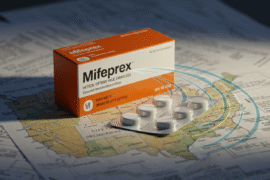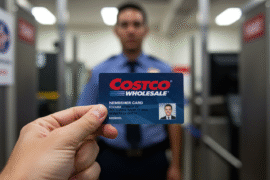This article may contain references to products or services from one or more of our advertisers or partners. We may receive compensation when you click on links to those products or services. Nonetheless, our opinions are our own.
The information presented in this article is accurate to the best of our knowledge at the time of publication. However, information is subject to change, and no guarantees are made about the continued accuracy or completeness of this content after its publication date.

Updated by Albert Fang
After getting injured in a car crash, you will be entitled to receive compensation for your damages. In most cases, you will have to file a claim with the other driver’s insurer to obtain it. However, securing fair compensation can be very complicated, as many of these insurers will try to low-ball your settlement.
Lowballing is a common practice among insurance companies. It consists of sending a compensation offer much lower than the actual value of the case. While it saves insurers a lot of money and improves their bottom line, it can be detrimental to you.
Here you will discover the common signs that the insurance company is lowballing you and what you should do to get the compensation you deserve.
The settlement offer came too fast.
Before sending an accurate settlement offer, the insurance company has to assess the accident, your injuries, and many other factors that influence the amount of money you should receive. Therefore, receiving a quick offer is a sign that they may be lowballing you.
They know that if they take too long to send the offer, you will have the opportunity to learn about your options, talk to an au car accident attorney and find out the actual value of your case.
They’re pressuring you to accept
After receiving the initial compensation offer, you should take your time to evaluate it and consult with an experienced attorney before accepting. After all, this decision may significantly impact your life for years to come.
If the insurer knows that their offer is too low, they will use various techniques to pressure you into signing. They may even try to intimidate you into accepting the offer. Don’t fall into their trap.
Your injuries are being disputed.
Car accidents often cause severe injuries that may have a long-lasting impact on your life. However, the insurance company may try to dispute the extent of your injuries to justify a lower settlement.
Be sure to document your injuries from the accident to have the evidence you need to submit a proper counteroffer.
They dismiss evidence
You may take the time to send medical bills, photos of the accident, details about your injury, and many other pieces of information to the insurance company, thinking it will impact their settlement offer.
But if they ignore the evidence or dismiss it as irrelevant, it’s a common sign that they may be lowballing your claim. If this happens to you, you may need to consider hiring an car accident attorney to protect your rights.
They claim the accident was your fault.
If you were the victim of the accident, why is the insurance company blaming you? This is another common pressure tactic to get you to accept a lowballed offer.
Don’t fall for it. If you were not at fault for the crash, there is nothing for you to worry about. An attorney may see this tactic coming and could help you prove that you were not responsible for the collision.
They say you don’t need an attorney.
If the insurance adjuster tells you that you don’t need an attorney or that working with a legal professional will be a waste of time, it could be a sign that something shady is going on.
After a crash, an auto accident injury lawyer, like C&B Law Group, can help you determine the true value of your case in minutes. Not only that, but they may also be able to help you negotiate with the insurer to secure the maximum compensation available for your claim.
As you can imagine, this is terrible news for the insurance company. The chances that they will have to pay you what you are entitled to will increase dramatically if you choose to work with an attorney. Don’t let them lowball your settlement, and do what you need to do to get what you deserve.

Reviewed and edited by Albert Fang.
See a typo or want to suggest an edit/revision to the content? Use the contact us form to provide feedback.
At FangWallet, we value editorial integrity and open collaboration in curating quality content for readers to enjoy. Much appreciated for the assist.
Did you like our article and find it insightful? We encourage sharing the article link with family and friends to benefit as well - better yet, sharing on social media. Thank you for the support! 🍉
Article Title: 6 Signs The Insurance Company is Offering a Low Settlement
https://fangwallet.com/2021/11/04/6-signs-the-insurance-company-is-offering-a-low-settlement/The FangWallet Promise
FangWallet is an editorially independent resource - founded on breaking down challenging financial concepts for anyone to understand since 2014. While we adhere to editorial integrity, note that this post may contain references to products from our partners.
The FangWallet promise is always to have your best interest in mind and be transparent and honest about the financial picture.
Become an Insider

Subscribe to get a free daily budget planner printable to help get your money on track!
Make passive money the right way. No spam.
Editorial Disclaimer: The editorial content on this page is not provided by any of the companies mentioned. The opinions expressed here are the author's alone.
The content of this website is for informational purposes only and does not represent investment advice, or an offer or solicitation to buy or sell any security, investment, or product. Investors are encouraged to do their own due diligence, and, if necessary, consult professional advising before making any investment decisions. Investing involves a high degree of risk, and financial losses may occur including the potential loss of principal.
Source Citation References:
+ Inspo












































